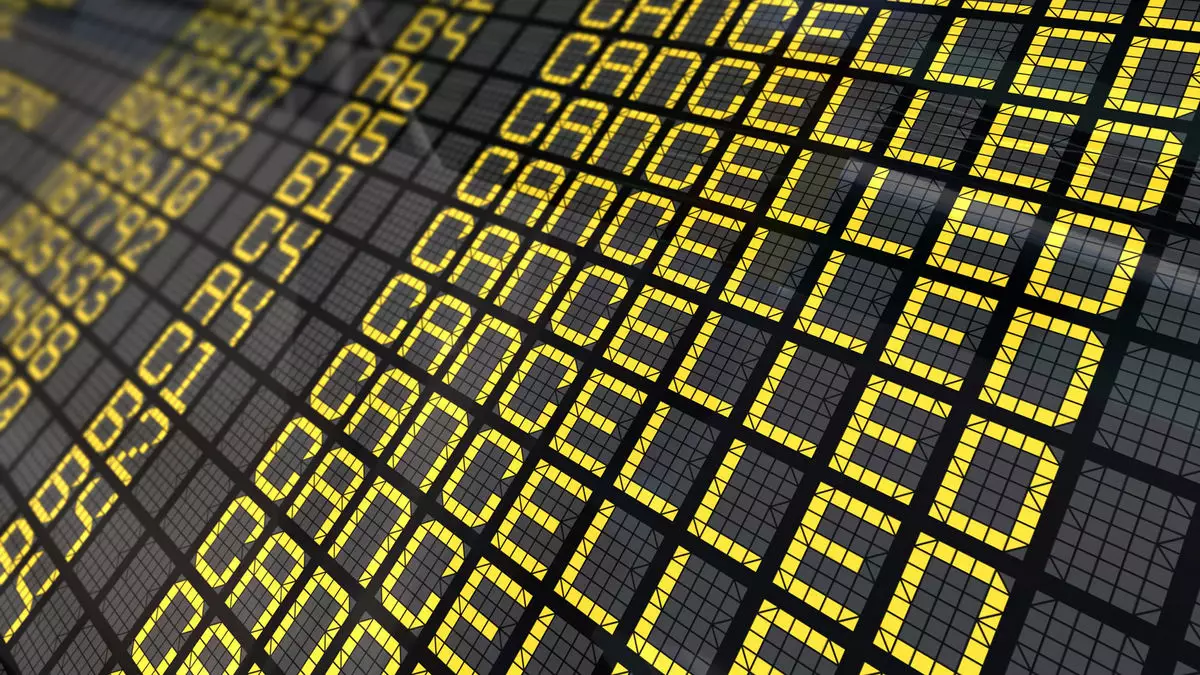The Department of Transportation (DOT) is actively seeking public feedback on a bold airline compensation proposal that could reshape how airlines manage customer service failures. This initiative arrives just as the Trump administration prepares to transition into office, igniting speculation about the future of regulatory standards within the airline industry. The proposed rule specifically aims to hold airlines accountable for cancellations and delays caused by their own operational errors — a commendable move toward increased consumer advocacy in an industry often criticized for its lack of accountability.
The proposed tiered compensation structure seeks to provide passengers with financial restitution based on the severity and duration of delays. Preliminary figures suggest compensation of $200 to $300 for delays lasting three to six hours, escalating to $775 for cancellations or longer delays. This raises vital questions: Will this enhance consumer rights significantly, or will it be stifled by an administration less inclined to enforce such regulations?
Under Secretary Pete Buttigieg’s leadership, the DOT has pushed for enhanced consumer protections, resulting in new airline refund laws and regulations pertaining to fee transparency during the booking process. However, the impending change in administration could warrant a shift in focus away from these consumer protections, diminishing their projected impact. Former congressman Sean Duffy, appointed to replace Buttigieg, represents a shift toward a less regulatory approach compared to his predecessor.
This transition raises concerns among consumer advocates and experts. Mark Dombroff, an aviation attorney, suggests that the compensation proposal could lose momentum once the public comment period ends. He speculates that the new administration may decide against pursuing a formal regulatory framework for compensation, effectively rendering the proposal impotent.
Nonetheless, consumer rights advocates view this proposal as an opportunity for significant progress. The urgency and relevance of the issue cannot be overstated, especially considering the historical context of airline operational failures resulting in passenger distress and dissatisfaction. The concept of compensating consumers materially for disruptions taps into broader discussions about fairness, accountability, and corporate responsibility.
Reactions from Airlines and Economic Implications
Predictably, the airline industry has responded negatively to the proposed compensation structure, framing it as an additional burden that could increase operational costs, thereby leading to higher ticket prices. Organizations such as Airlines for America (A4A) argue that existing practices—automatic refunds, reimbursement for essential services like meals and accommodations—demonstrate their commitment to customer satisfaction without government mandates.
International Air Transport Association (IATA) echoes these sentiments, indicating that existing EU compensation regulations have financially burdened airlines to the tune of over $5 billion annually. They caution that imposing similar regulations in the U.S. could ultimately disadvantage consumers through higher fares and fewer choices.
However, not everyone agrees with this perspective. Advocacy groups such as Skycop and AirHelp, which specialize in assisting passengers in seeking compensation, counter that the proposed compensation could yield minor incremental costs, causing negligible effects on ticket prices. They assert that the insistence on fair compensation is essential, enhancing service reliability and accountability.
Recent studies examining the impact of compensation regulations in Europe lend credence to this advocacy. Research indicates that airlines operating under such regulations are statistically more likely to arrive on time than their U.S. counterparts. In an industry where timeliness is intimately linked to consumer satisfaction, fostering a fair environment for passenger grievances may translate into improved service standards.
The ongoing discourse surrounding the DOT’s proposed airline compensation rules highlights a critical junction in the regulatory approach to consumer rights in air travel. On one hand, proponents argue for increased accountability and fairness in an industry often marred by disruption and inconvenience. On the other hand, industry lobbyists caution against regulatory overload, asserting that such actions may lead to unintended consequences that ultimately harm the consumer.
As public interest in consumer protection grows, the forthcoming discussions surrounding this proposal will likely shape the operational landscape of the airline industry for years to come. Are we on the cusp of a new era of consumer empowerment in air travel, or is this merely a temporary rallying cry that risks falling silent in the face of regulatory challenges? The answer remains uncertain, but one thing is clear: the dialogue has been ignited, and its outcome will undoubtedly influence the trajectory of airline consumer protections in the United States.


Napsat komentář